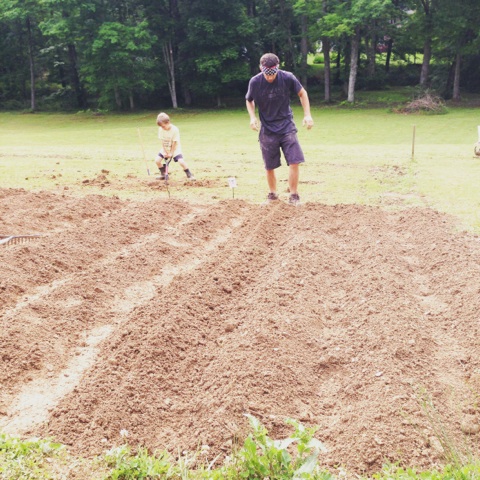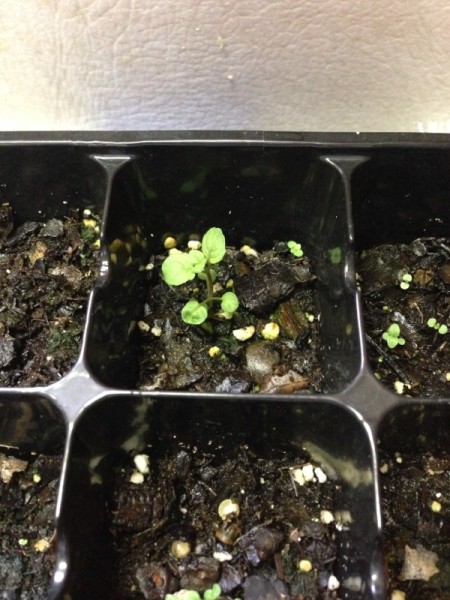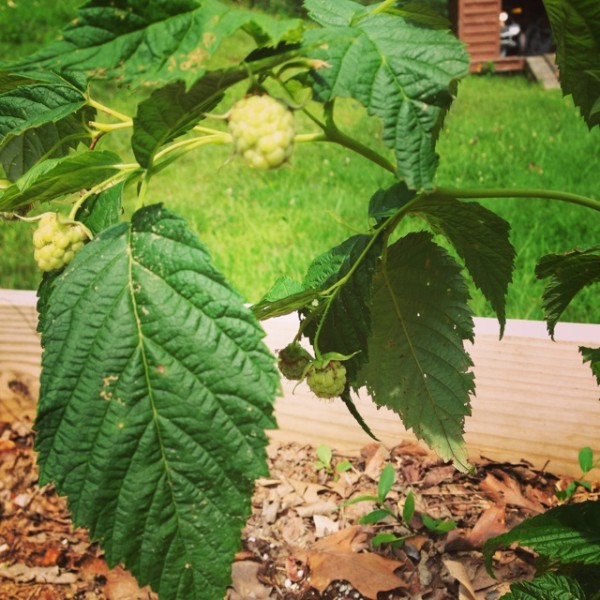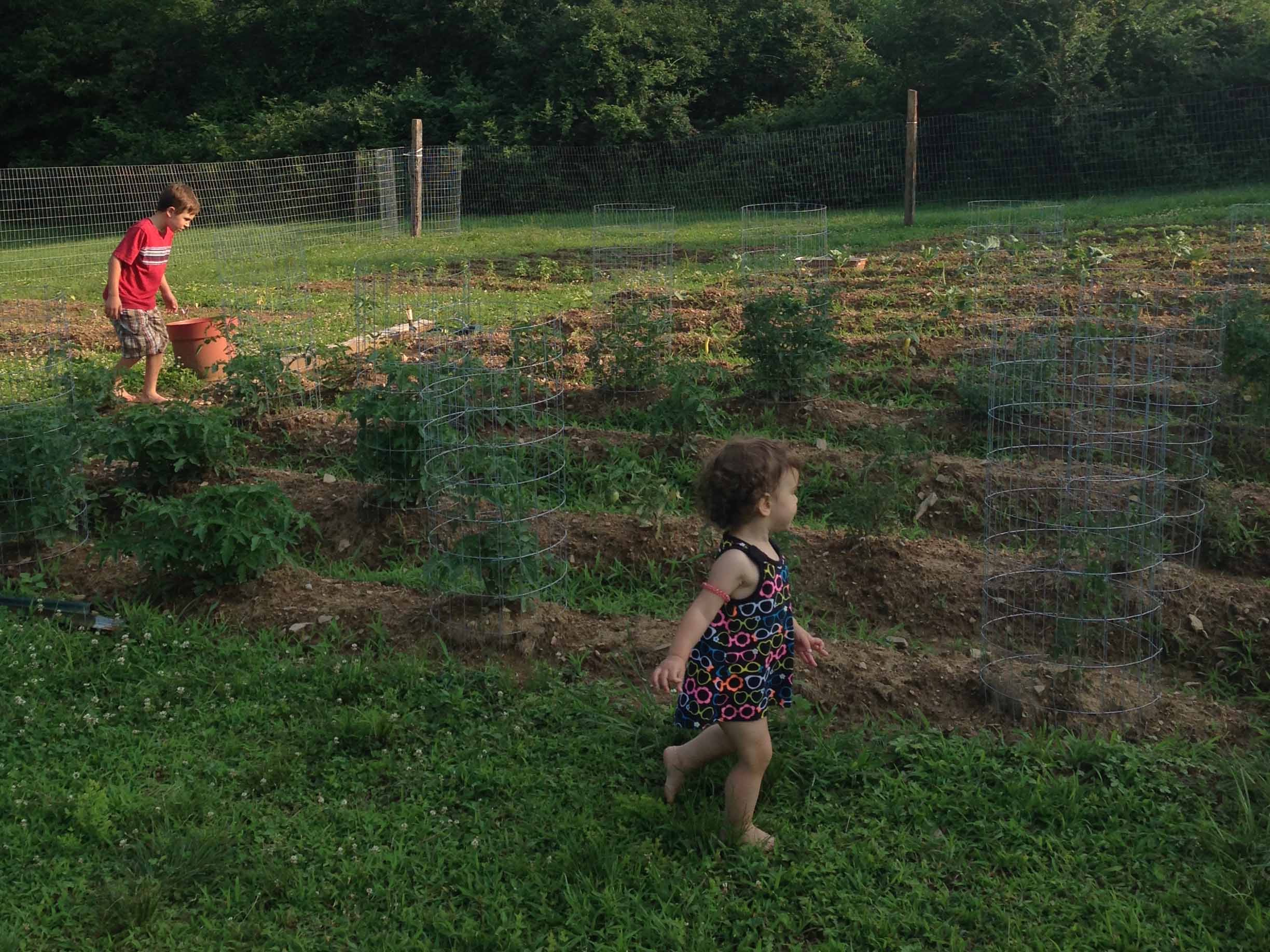Backyard Farming Series: Q & A with Bill Reed
Barefooted and smeared with dirt, a tiny, sprite of a girl happily chews on a banana pepper while sitting between rows of sweet tomato plants. Husband and wife carefully pull out the crab grass that has crept into the soil mounds where succulent leaves of spinach peak through, while there son playfully searches for worms in the wet ground on the edges of their family garden.
The Reed family, like many others who live on the outskirts of the city of Elkins, utilize their two acre property as an opportunity to have more than a yard. In a 50’X50’ plot, that resembles more of a tiny farm, numerous vegetables and fruiting trees are thriving.
Bill and Kate Reed moved back to Elkins in 2011 after living in Northern Virginia for six years and this is the third year they have worked at cultivating a garden.

How did you develop an interest in backyard farming?
Bill Reed: When I was a kid my grandparents did a lot of gardening and canning and cooking. My parents were also an influence. I really always had some sort of garden growing up and really enjoy fresh food. My wife also has a lot of food allergies and we try to eat very clean and growing our own food helps us do that.
How did you get started?
Bill Reed: We started a small garden and our soil was very poor and mostly clay. I did a lot of research and ended up building raised beds and building a compost bin that would help put nutrients back into the soil. By our second year we had a great crop of produce in only four medium sized raised beds. Now we continue to maintain those garden beds and expanded out front where we have a 50’ x 50’ plot.

What do you do to prepare each year?
Bill Reed: We started with research on plants we want to grow and then draw a diagram based on the space we want to use. We always end up with less space than we need. We have to manage expectations from year to year. We start many of our seeds indoors in early spring in a shelving unit by a sunny well lit window and some under lights so they are ready to go directly in the ground after the last frost.

How long have you been doing this?
Bill Reed: This is the third season our family has had our own vegetable and herb garden.
What fruits and vegetables are on your property?
Reed: Apple trees, raspberries, strawberries, hula berries, blueberries and black berries are all in raised beds in loamy soil. We also have carrots, onions, three varieties of tomatoes, bell peppers, hot peppers, sweet peppers, black beauty eggplants, broccoli, cauliflower, summer squash, zucchini, spinach, lettuce, kale, beets, cucumbers, and various herbs including mint, cilantro, basil, oregano, and parsley.

Is your garden/farm for personal use or do you sell items?
Bill Reed: We only use it for personal use and give some items to family and friends.
What is your favorite item to tend to on the property and why?
Bill Reed: The apple trees are my favorite because they’re very low maintenance and we can do so many things with apples. The Japanese beetles have been a problem this year so our trees have required a little more work than usual.
What has backyard farming taught you?
Bill Reed: It’s taught me to plan. It’s not a project that you can go into and just wing it. You have to start early because it’s a lot work. Be thinking about things all year such as the best times to till and transplant.
What is your least favorite chore?
Bill Reed: Pulling weeds.
What do you do with your fruit and vegetables once their ready to be picked or processed?
Bill Reed: My wife usually plans what we’re going to do with the items. A lot if it depends on what does well and what doesn’t. We plan a lot of our summer menus around what comes out of the garden. We can and dehydrate our apples. We freeze a lot of our vegetables and have started fermenting many of our fruits and some vegetables. We’ve made sauerkraut, fermented carrots and cauliflower, fruit shrubs and many of our herbs are picked fresh to go into various dishes. We hope to make hard cider this year. We have a ton of apples this season.
What do you plan to do differently next year?
Bill Reed: We hope to have some chickens, and also re-purpose our shed to build a greenhouse so we can have more vegetables year round.
Do you have a backyard farm or garden you’d like to showcase? Submit your story on Elkinite.


